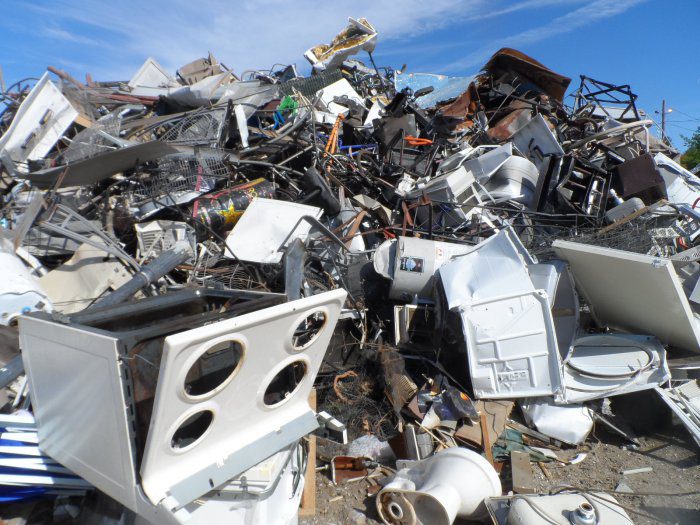The Ultimate Guide to Zero Waste Living: How to Minimize Waste and Maximize Sustainability

Understanding zero waste living
Living a zero waste lifestyle is a commitment to minimizing waste and maximizing sustainability. It involves a conscious effort to reduce, reuse, and recycle, with the ultimate goal of sending nothing to the landfill. By adopting a zero waste mindset, you can make a positive impact on the environment and inspire others to do the same.
The environmental impact of waste

Waste has a significant environmental impact, from the extraction of raw materials to the production and disposal of products. When we throw things away, they end up in landfills, where they contribute to greenhouse gas emissions and contaminate the soil and water. By reducing waste, we can conserve resources, reduce pollution, and protect our planet for future generations.
Benefits of adopting a zero waste lifestyle
Embracing a zero waste lifestyle offers numerous benefits. By reducing our consumption and waste, we can save money, as we become more mindful of our purchases and focus on quality over quantity. Additionally, a zero waste lifestyle promotes healthier living, as it encourages the use of natural and sustainable products. It also fosters a sense of community and empowerment by connecting us with like-minded individuals and inspiring change at a larger scale.
Getting started with zero waste living
Transitioning to a zero waste lifestyle may seem daunting at first, but with small steps, anyone can make a difference. Here are some tips to help you get started:
- Assess your current waste: Take a look at the trash you generate and identify areas where you can make improvements. This will help you prioritize changes and set goals for waste reduction.
- Adopt the 5 R’s: Refuse, reduce, reuse, recycle, and rot. These are the five principles of zero waste living. Refuse single-use items, reduce your overall consumption, reuse items whenever possible, recycle properly, and compost organic waste.
- Start small: Begin by making simple changes in your daily life. Swap plastic water bottles for a reusable one, bring your own cloth bags when shopping, and opt for products with minimal packaging.
Reducing waste in the kitchen
The kitchen is a major source of waste in many households. By adopting a few habits and making conscious choices, you can significantly reduce your kitchen waste. Here’s how:
- Meal planning and batch cooking: Plan your meals in advance to avoid food waste and cook in larger batches to have leftovers for future meals. This reduces the need for single-use packaging and saves time and energy.
- Compost food waste: Instead of throwing food scraps in the trash, start a compost bin or worm farm. Composting not only reduces waste but also creates nutrient-rich soil for your garden.
- Choose reusable alternatives: Ditch disposable items such as paper towels, plastic wrap, and disposable cutlery. Instead, opt for reusable alternatives like cloth napkins, beeswax wraps, and stainless steel utensils.
Minimizing waste in the bathroom

The bathroom is another area where we can make conscious choices to minimize waste. By opting for sustainable alternatives and reducing packaging, we can create a more eco-friendly bathroom. Here are some tips:
- Switch to zero waste personal care products: Look for brands that offer eco-friendly alternatives to common bathroom products, such as shampoo bars, refillable toothpaste, and reusable cotton rounds.
- Make your own toiletries: Consider making your own toiletries like toothpaste, deodorant, and facial masks. There are numerous recipes available online using natural ingredients that are better for your health and the environment.
- Choose packaging-free options: Seek out products that come in minimal or plastic-free packaging. From bar soap to bamboo toothbrushes, there are plenty of options available to reduce bathroom waste.
Sustainable shopping and zero waste alternatives
Shopping mindfully is a crucial aspect of zero waste living. By making conscious choices and seeking out sustainable alternatives, we can minimize waste and support ethical practices. Here’s how to shop sustainably:
- Buy in bulk: Opt for bulk bins when grocery shopping to reduce packaging waste. Bring your own reusable bags and containers to fill with grains, nuts, and spices.
- Choose second-hand: Embrace the concept of “pre-loved” items by shopping at thrift stores, consignment shops, and online marketplaces. Buying second-hand not only reduces waste but also saves money.
- Support local and sustainable businesses: Seek out local farmers’ markets, zero waste stores, and eco-friendly brands. By supporting these businesses, you contribute to creating a more sustainable economy.
Managing waste in the workplace
Reducing waste in the workplace is not only beneficial for the environment but can also improve productivity and morale. Here are some tips for minimizing waste in the office:
- Go digital: Embrace technology and reduce paper waste by opting for digital files and online communication. Use cloud storage and project management tools to streamline workflows and minimize the need for printing.
- Encourage recycling: Set up recycling bins throughout the office and educate employees on proper recycling practices. Make it easy for everyone to recycle by providing clear instructions and signage.
- Promote reusable alternatives: Provide reusable cups, mugs, and cutlery in the office kitchen. Encourage employees to bring their own lunch containers and water bottles to reduce single-use waste.
Zero waste tips for traveling
Traveling can pose challenges to maintaining a zero waste lifestyle, but with careful planning, it is possible to minimize waste even on the go. Here are some tips for zero waste travel:
- Pack a zero waste kit: Bring your own reusable water bottle, coffee cup, utensils, and cloth bags. This way, you can avoid single-use items while on the road.
- Research zero waste options: Before traveling, research zero waste-friendly destinations, accommodations, and restaurants. Seek out bulk stores and farmers’ markets to stock up on essentials without excessive packaging.
- Offset your carbon footprint: Consider offsetting your travel emissions by supporting carbon offset projects. This helps to mitigate the environmental impact of your journey.
Zero waste DIY projects and upcycling ideas
Embracing a zero waste lifestyle opens up a world of creative possibilities. DIY projects and upcycling allow you to give new life to old items and reduce waste in the process. Here are some ideas to get you started:
- Repurpose glass jars: Clean and reuse glass jars for storing pantry items, organizing craft supplies, or creating homemade candles.
- Turn old clothing into new: Transform worn-out clothes into new garments or repurpose them into cleaning rags, reusable shopping bags, or quilts.
- Upcycle furniture: Give old furniture a fresh look by painting or reupholstering it. With a little creativity, you can create unique pieces while diverting waste from the landfill.
Inspiring zero waste success stories
Learning from others who have successfully adopted a zero waste lifestyle can be incredibly motivating. Here are a few inspiring success stories to inspire and guide you on your journey:
- Bea Johnson: Bea Johnson, the author of “Zero Waste Home,” is a pioneer of the modern zero waste movement. Her family produces only a small jar of waste per year.
- Lauren Singer: Lauren Singer, the founder of the blog “Trash is for Tossers,” showcases her zero waste lifestyle and offers practical tips for reducing waste.
- Tara McKenna: Tara McKenna, known as “Zero Waste Chef,” shares her experiences and recipes for zero waste cooking and baking.
Resources and tools for zero waste living
The journey towards zero waste living is made easier with the help of various resources and tools. Here are some recommendations to assist you along the way:
- Books: “Zero Waste Home” by Bea Johnson, “Waste Not” by Erin Rhoads, and “The Zero Waste Cookbook” by Giovanna Torrico are excellent resources for learning more about zero waste living and gaining practical insights.
- Online communities: Join online communities and forums dedicated to zero waste living. You can connect with like-minded individuals, ask questions, and share your experiences.
- Apps: Explore zero waste apps such as “Buycott” and “Think Dirty” that help you make informed choices about products and brands based on their sustainability and ethical practices.
Conclusion
Living a zero waste lifestyle is a journey, and every small step counts. By understanding the environmental impact of waste, adopting sustainable practices, and making conscious choices, you can minimize waste and maximize sustainability. Remember, it’s not about perfection but progress. Let’s embrace the challenge of zero waste living and create a better future for ourselves and the planet.
Join the zero waste movement today and start making a positive impact on the environment. Share your zero waste journey and inspire others to follow suit. Together, we can create a more sustainable future for generations to come.
More on Planet Goodwill
The Urgency of Addressing Climate Change: A Call to Action for a Sustainable Future
Examining the Effective Steps Governments Have Taken to Combat Climate Change




